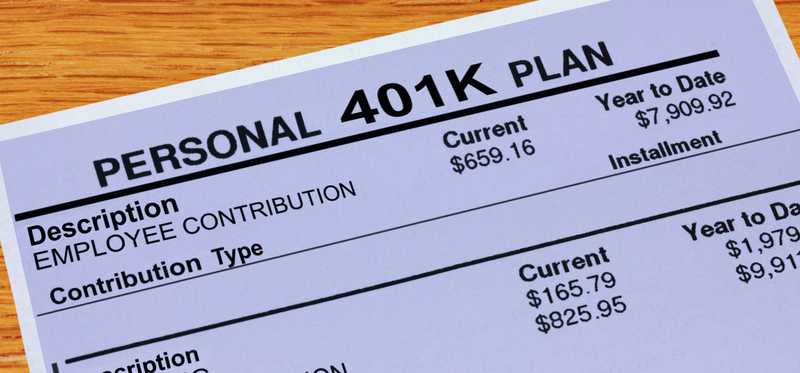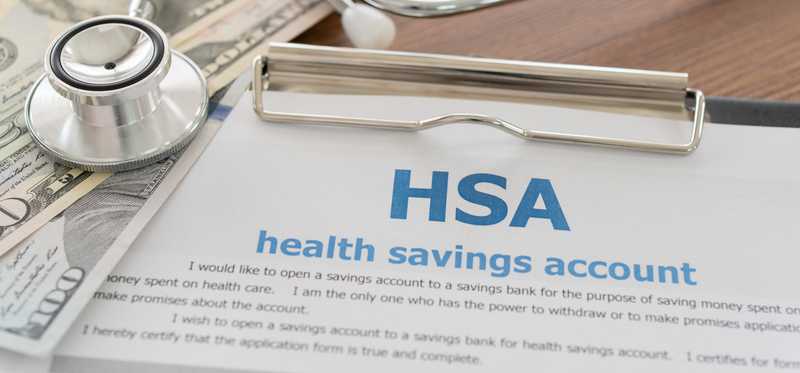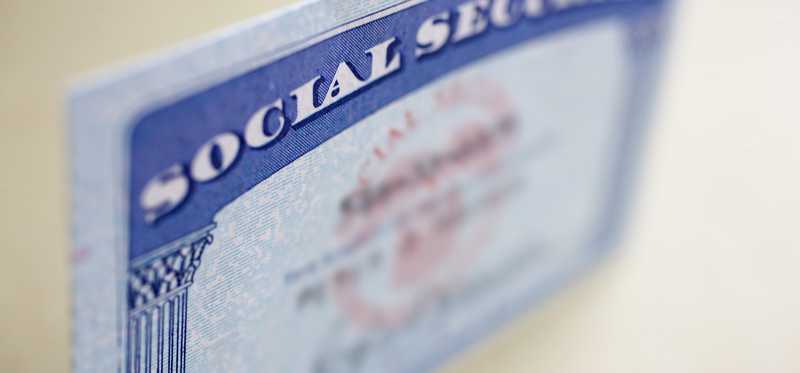12 Ways to Still Plan for a Healthy Retirement During a Recession

12 Ways to Still Plan for a Healthy Retirement During a Recession
Your plans don't have to get destroyed
Right now, the U.S. economy is holding steady despite soaring inflation and a very volatile stock market. But economic conditions could end up taking a turn for the worse. And if a recession hits, it could impact some people's retirement plans. If you make these smart moves, though, you can look forward to a comfortable retirement without too much of an impact.
5 Stocks Under $49
Presented by Motley Fool Stock Advisor
We hear it over and over from investors, "I wish I had bought Amazon or Netflix when they were first recommended by The Motley Fool. I'd be sitting on a gold mine!" It's true, but we think these 5 other stocks are screaming buys. And you can buy them now for less than $49 a share! Click here to learn how you can grab a copy of "5 Growth Stocks Under $49" for FREE for a limited time only.
Previous
Next

1. Cut back on spending now
Conserving funds is a great way to keep retirement plans on track despite a recession. Make an effort to spend less on nonessentials, and see if there are even some core bills you can cut. Selling a car you can get by without, for example, could free up a lot of cash for you to bank.
Previous
Next

2. Consider downsizing
Housing is a lot of people's most substantial expense -- both during their working years and retirement. If you unload a larger home and replace it with a smaller one, your housing costs might shrink, making it easier to shore up your finances.
Previous
Next

3. Boost your emergency fund
Retirees and near retirees should always have enough cash to cover 12 to 24 months of living expenses. That way, if your investments lose value during a recession, you'll have a means of paying your bills. If economic conditions worsen, you'll really want to boost your cash savings, even if that means giving up the higher gains you'd get from stocks and other investments.
Previous
Next

4. Keep funding your IRA or 401(k)
Both IRAs and 401(k) plans are loaded with tax breaks, so if you can afford to keep contributing to one during a recession, that's a great thing. That way, you'll have a larger nest egg to tap once your time in the workforce wraps up.
Previous
Next

5. Secure a second job
Jobs may be difficult to come by during a recession -- but that may not apply to every industry. If it's possible to pick up a temporary second job, that money could make it so you're able to keep boosting your savings and give yourself more of a cushion for when you actually retire.
5 Stocks Under $49
Presented by Motley Fool Stock Advisor
We hear it over and over from investors, "I wish I had bought Amazon or Netflix when they were first recommended by The Motley Fool. I'd be sitting on a gold mine!" It's true, but we think these 5 other stocks are screaming buys. And you can buy them now for less than $49 a share! Click here to learn how you can grab a copy of "5 Growth Stocks Under $49" for FREE for a limited time only.
Previous
Next

6. Max out your HSA
If you have a health savings account, or HSA, it pays to keep pumping money into it, even if economic conditions aren't ideal. HSAs actually offer more tax breaks than any other long-term savings account, since they effectively combine the benefits of traditional and Roth IRAs and 401(k)s. And while HSAs are intended as medical savings plans, once you turn 65, an HSA basically converts to a traditional retirement account -- meaning, you can withdraw funds for any purpose but pay taxes on that money.
Previous
Next

7. Make sure your assets are allocated appropriately
If retirement is nearing, it's important to give your portfolio a checkup and make sure you're not invested in an overly aggressive fashion. This isn't to say that you should dump your stocks, but rather make sure they don't take up an unreasonably large portion of your portfolio.
Previous
Next

8. Secure ongoing interest income
Bonds can be a great source of interest income, and since they're less subject to wild fluctuations in value than stocks, they can be a good investment to hold in retirement. You might specifically want to look at municipal bonds as an investment to hang onto, since the interest payments they pay are always tax exempt at the federal level.
ALSO READ: Here's Why Municipal Bonds Belong in Every Investor's Portfolio
Previous
Next

9. Set yourself up with dividend payments
Just as interest from bonds can be a good source of steady retirement income, so too can dividends serve a similar function. If economic conditions worsen, you might land in a position where you can buy dividend stocks at a relative discount -- and then enjoy those ongoing payments down the line.
Previous
Next

10. Hold a diverse mix of investments
Limiting yourself to just a few market sectors in your portfolio could mean taking losses during a recession -- and leaving yourself with less income for retirement. Make sure you have a nice, diverse mix of investments, and if you don't, consider branching out into new segments of the market or loading up on broad market exchange-traded funds (ETFs).
5 Stocks Under $49
Presented by Motley Fool Stock Advisor
We hear it over and over from investors, "I wish I had bought Amazon or Netflix when they were first recommended by The Motley Fool. I'd be sitting on a gold mine!" It's true, but we think these 5 other stocks are screaming buys. And you can buy them now for less than $49 a share! Click here to learn how you can grab a copy of "5 Growth Stocks Under $49" for FREE for a limited time only.
Previous
Next

11. Make sure to own some recession-proof investments
There are certain industries that are better poised to withstand a recession than others. Take healthcare, for example. People will always need medical care even if economic conditions are poor, so you may want to make sure you own some healthcare stocks or real estate investment trusts (REITs), as those might do a decent job of holding their value.
Previous
Next

12. Educate yourself on Social Security
A big part of retirement planning is coming up with a smart Social Security filing strategy. And regardless of how the economy is doing, it's always a good idea to read up on Social Security so you can map out a plan for claiming benefits at the right age for you.
ALSO READ: 3 Great Reasons to Take Social Security Benefits at 62
Previous
Next

You can ride out the storm
Recessions can be nerve-wracking, and they have the potential to upend retirement plans. But if you play your cards right, you can ride out a recession and still pull off the retirement of your dreams.
The Motley Fool has a disclosure policy.
Previous
Next
Invest Smarter with The Motley Fool
Join Over Half a Million Premium Members Receiving…
- New Stock Picks Each Month
- Detailed Analysis of Companies
- Model Portfolios
- Live Streaming During Market Hours
- And Much More
READ MORE
HOW THE MOTLEY FOOL CAN HELP YOU
-
Premium Investing Guidance
Market beating stocks from our award-winning service
-
The Daily Upside Newsletter
Investment news and high-quality insights delivered straight to your inbox
-
Get Started Investing
You can do it. Successful investing in just a few steps
-
Win at Retirement
Secrets and strategies for the post-work life you want.
-
Find a Broker
Find the right brokerage account for you.
-
Listen to our Podcasts
Hear our experts take on stocks, the market, and how to invest.
Premium Investing Services
Invest better with The Motley Fool. Get stock recommendations, portfolio guidance, and more from The Motley Fool's premium services.